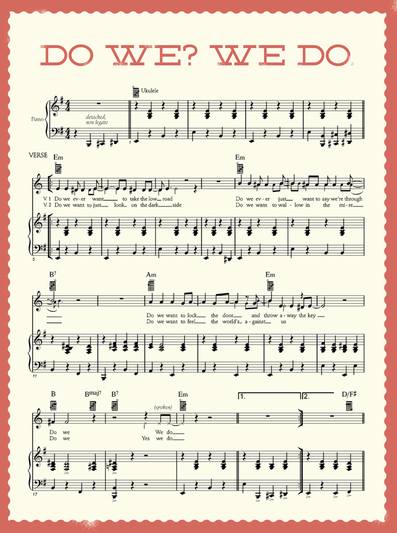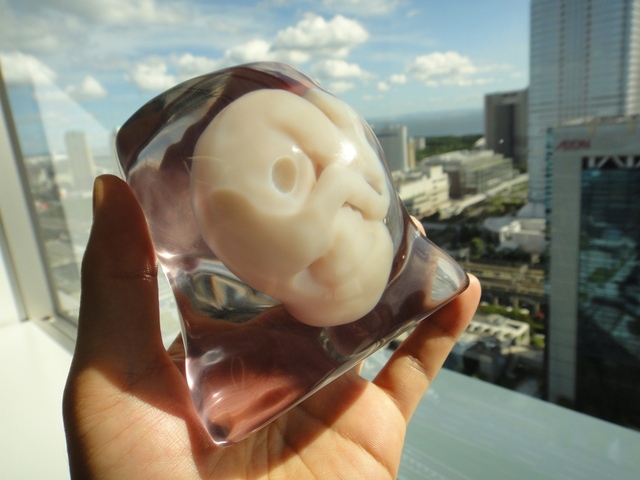In October last year, I stirred up a bit of a hornets nest when I wrote something that was admittedly deliberately provocative about “worship” and “music in church gatherings.”
I’ve probably nuanced what I would say about “worship” since then – I think, and this is a working definition, that “worship is the sacrificial use of the gifts God has given you to glorify him by loving and serving him, and one another, and pointing people to Jesus.” I think that best accounts for Romans 12, and Paul’s approach to ministry and spiritual gifts, particularly in Corinthians.
I’m pretty convinced by the argument that singing in our gatherings is part of “word ministry” – it is designed to both express something about our faith in Jesus, express something vertically in terms of vocalising our praise to God, and express something horizontally in terms of encouraging our brothers and sisters as we sing together, and highlighting something for the non-Christian in the midst of our gathering (ala 1 Cor 14:22-25).
Singing is communication. Singing is word ministry. And laying aside all debates about the charismatic movement and whether flaying your arms around, or at least moving, is biblically mandated (or rather, warranted, ala what Bob Kauflin dealt with when he spoke in Brisbane last year), I think we I’d at least argue we’re doing this communication part badly… or at least not communicating as fully as we could be… if we adopt the dour posture common in the reformed evangelical (Presbyterian) circles that I move in.
Here’s why.

Image Credit: The Speaker’s Practice
Most communications experts and consultants I’ve dealt with over the years – from uni lecturers during my undergrad degree, to consultants we hired in the workplace, to preaching lecturers at college – stress the importance of things other than words when we are speaking. Things we call “non verbal communication.”
The number in the pie chart above seems pretty arbitrary – I’ve heard it said that non-verbal communication can account for up to 85% of what we communicate, or how effectively we communicate it, when we speak. That’s what these guys claim.
They also claim that 90% of the emotional work is carried by non-verbals.
If this stat is true then it plays into another aspect of communication – particularly when it comes to the fine art of persuasion. And if communication is not “persuasive” in some sense, if you’re just preaching to the choir – literally – when you sing, and you’re not trying to reinforce or hammer home something using music as a teaching tool, then I’d argue that it’s not really a particularly useful form of Christian encouragement, and you’re not really treating music as word ministry.
Persuasion, since Aristotle (and later, my favourite, Cicero), has been divied up into categories of pathos (emotion), ethos (character), and logos (content) – here’s a run down from another public speaking site I found via google. And a little diagram – I’d argue from the stat above, even if its inaccurate, that pathos includes convincing non-verbals…

Image Credit: Visual Books Project
In my experience of my circles our approach to music heavily invests in the logos element of our music, treats music as a ministry that requires a certain character test for members of the band (ethos), and maintains a deep suspicion of pathos because it’s largely, especially in the absence of the other two elements, where manipulation goes down.
I’ve written something about manipulation and persuasion before. And personally I am deeply, and culturally, suspicious of any attempts to manipulate the way I think with bells and smells, ritual, minor falls and major lifts, or any little tools that bands might use – like clapping.
I’m not suggesting working our way through this chart until you find something that resonates with you.

Image Credit: TimHawkins.net (get the T-Shirt)
But I don’t think this suspicion is the answer – and I think its stymying our ability to communicate the gospel clearly in everything we do when we gather. I’m trying to figure out what being mindful of what I’m communicating non-verbally when I sing looks like.
Good persuasion, following Cicero, means starting with character, and then tying logos and pathos together under that rubric. I think Paul takes Cicero’s ball and runs with it in his letters to the Corinthians (my Corinthians essay) – arguing that the character test for Christian ministry is being sacrificially cross shaped in how they do life, and especially how they gather… and I think, if emotion is carried by non verbal communication, and assuming we’ve got issues of ethos and logos right in our singing, then we need to be thinking about how we do pathos well with our non-verbals when we use singing to communicate the gospel. In a way that is sacrificial and meets the definition of worship I floated above.
The call then, is for us to be genuinely authentic when we’re singing together, rather than faking authenticity, pretending to be bought in to the emotional stuff, because we want to communicate something. There are heaps of people, particularly in our culture, who are just like me – suspicious of overtly emotional stuff, wary of manipulation through an increasing sensitivity to the tricks of advertisers, spin doctors, and other charlatans – so we can’t do the pathos, or even the logos, right, without getting the ethos right first. But nor can we be so scared of this stuff that we avoid pathos all together – because a lack of emotional buy in amounts to an insincere and inauthentic approach to persuasion, and also fails at communicating as effectively as possible.
It’s traditional for posts about doing non-verbal stuff while you’re singing to say the Christian thing to do is to be sensitive to the people around you and not do stuff that will distract or offend them – which if worship is sacrificial service of others as well as of God – goes without saying.
The questions then are – if singing forms part of our word ministry – if it’s communication – how do we communicate our thankfulness to God using the means of communication that he has given us,* how do we best use these means to encourage each other about the power of the gospel in our lives as we sing, and how do we use them to communicate the gospel to outsiders?
Interestingly, as a bit of a throwaway, this book chapter on gestures in communication, suggests that gestures are particularly helpful for overcoming a communication divide (from p 21) – I’m not going to hang the whole thesis of this post off this, but I wonder if seeing some familiar gestures in response to music (like the stuff you might see at a concert), rather than a room of dour people, may overcome some of the gaps between the inevitable Christian jingo and vocabulary some of our songs contain, and make the experience of corporate singing a little less weird – rather than more weird, though you could equally run with this point to justify interpretive dance… this book chapter also suggests we’re generally reliably able to spot people who are performing “rehearsed” gestures, rather than spontaneous.
I don’t think the answer is looking something like this…

* I’m trying to be careful here not to suggest a non-Biblical requirement where we must make gestures as we sing – I think the expression of the vertical aspect of our singing has significance for its effectiveness horizontally as a means of encouragement and communicating the gospel.














